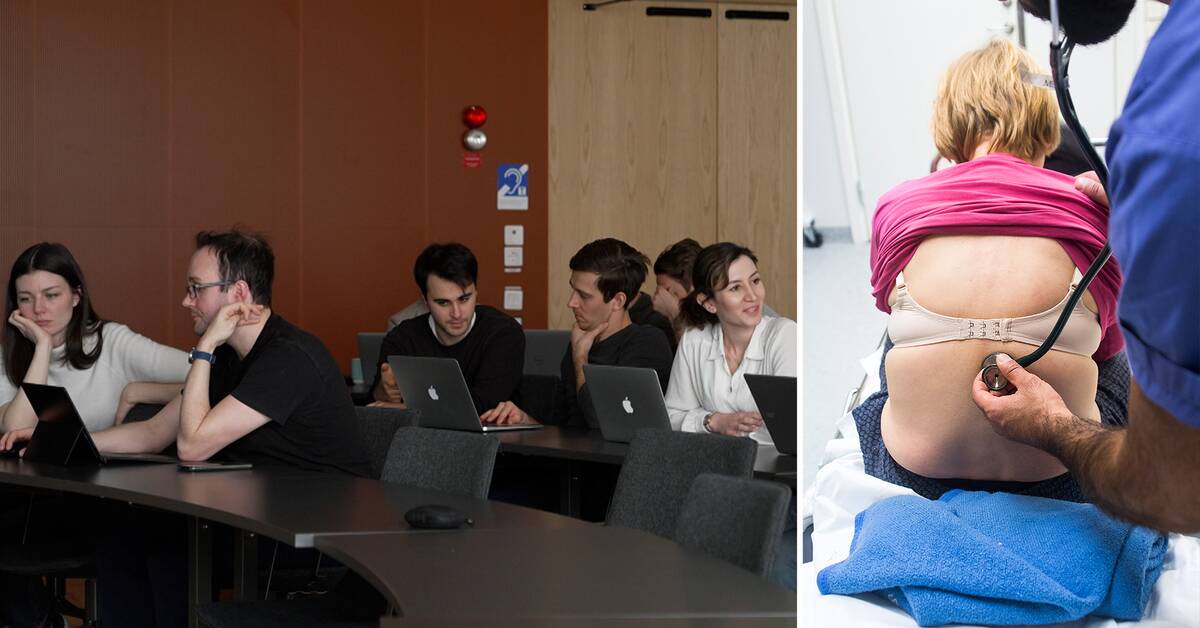Six out of ten doctor visits take place in primary care, and the need for doctors who specialize in general medicine and who want to work in primary care is great.
With an aging population and ongoing work to expand primary care, there is a growing need.
But as SVT Nyheter previously reported, there is great dissatisfaction among many general practitioners who work in primary care today.
A large proportion work part-time to cope and many are considering quitting.
Prospective doctors not interested
SVT Nyheter's survey of medical students now also shows that interest in general medicine among the country's future doctors is low.
The questionnaire has been sent out to almost 1,400 students who are currently in the last two semesters of the country's medical educations.
Half have answered and of them only 5 percent say they know for sure that they want to specialize in general medicine.
34 percent answered that they know they do not want to do it and 61 percent that they did not decide.
"Health care's most ungrateful job?"
Of those who answered that they do not want to become general specialists, many mention that it seems boring or that they are more interested in something else.
Many also write that the reason is the workload:
"It's far too much pressure. One patient per quarter including administration is unreasonable. At the health center I did an internship at, they have a 10-minute visit. ”
“Always short on time, extreme time pressure. High workload, like an infinite pile to shovel. Health care's most ungrateful job? ”
"I do not want to risk being burned out. I have no good experiences from the area. ”
"Insufficient"
The students who answered that they have not decided yet have been asked what they have as their first choice today.
Here, a slightly larger proportion, 12 percent, respond to general medicine.
According to the Swedish District Medical Association, however, this is not enough to achieve the goal that every resident should have their own permanent doctor contact.
- The educations have already done a lot, says the association's chairman Marina Tuutma.
To attract more students, the regions must move from words to action and start working for a sustainable work environment.

